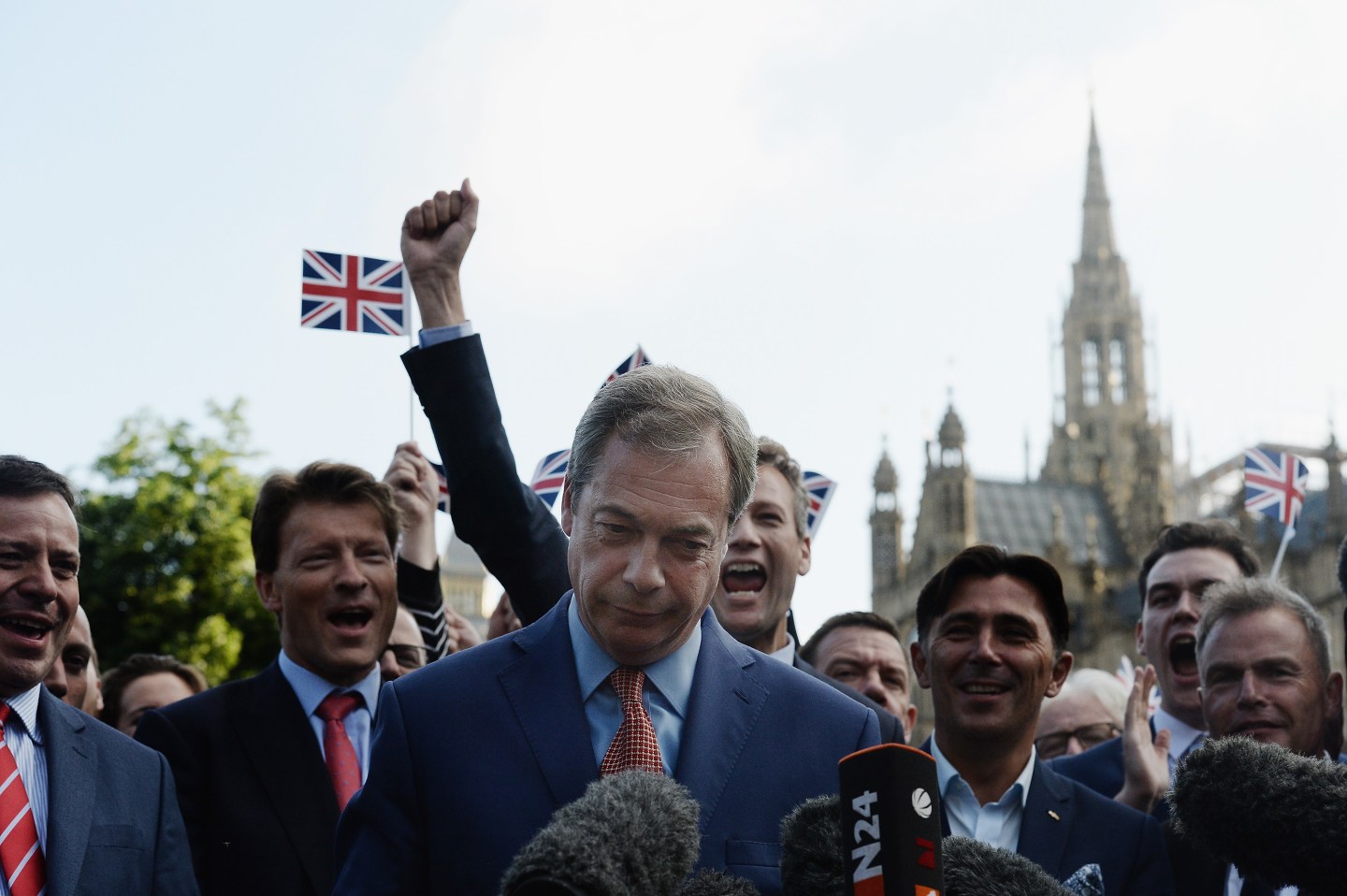The British have voted to leave the European Union, pummeling financial markets and setting the stage for months, if not years, of economic uncertainty. British Prime Minister Cameron, who set the drama into motion four years ago by promising a Brexit vote, has resigned. You can read Fortune’s thorough coverage of this earth-shaking event here.
The vote will be analyzed—and likely overanalyzed—in the days ahead, so I want to be careful about what I say here. In part, it reflects political mismanagement by Cameron, who must regret ever calling for a vote in the first place. It is also a wake-up call for Brussels, whose odd mix of incompetence and overreach have fed the “leave” vote.
But there is a bigger message for the readers of this newsletter, even if they do no business in Britain. The post-World War II world was built on a commitment to steadily increasing globalization and a broad sense that the resultant economic tide would lift all boats. That sense has been shattered, and the Brexit vote will empower populists elsewhere, including Donald Trump in the U.S. (who is in Scotland today and called the vote “a great thing”) and Marine Le Pen in France (who called it “the right choice”) as well as nationalists like Vladimir Putin. A toxic soup of factors, including rising inequality, a migration crisis, a persistent hangover from 2008, and a tragic failure of Western governments, all have come together to feed a tidal wave of sentiment that now poses a very serious threat to the global businesses that populate the Fortune 500 and the Fortune Global 500. The system is broken. We need a new compact to restore the trust of people in the global economic order, and business leaders must play a key role in building it.
Some think that disorder in the U.S. and Europe will clear the way for the rise of Chinese business and economic leadership. I still have my doubts, and would urge you—after you’ve finished digesting the Brexit news—to read Scott Cendrowski’s story about how Xiaomi, China’s biggest and once most-promising “unicorn,” is stumbling in its efforts to go global. The story is in the July issue of Fortune magazine, but we are publishing it online this morning.













